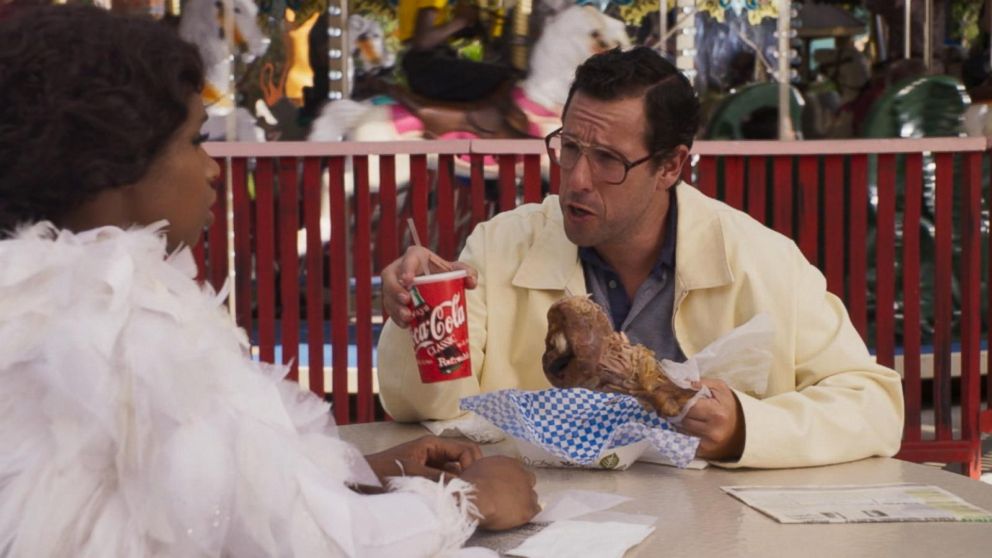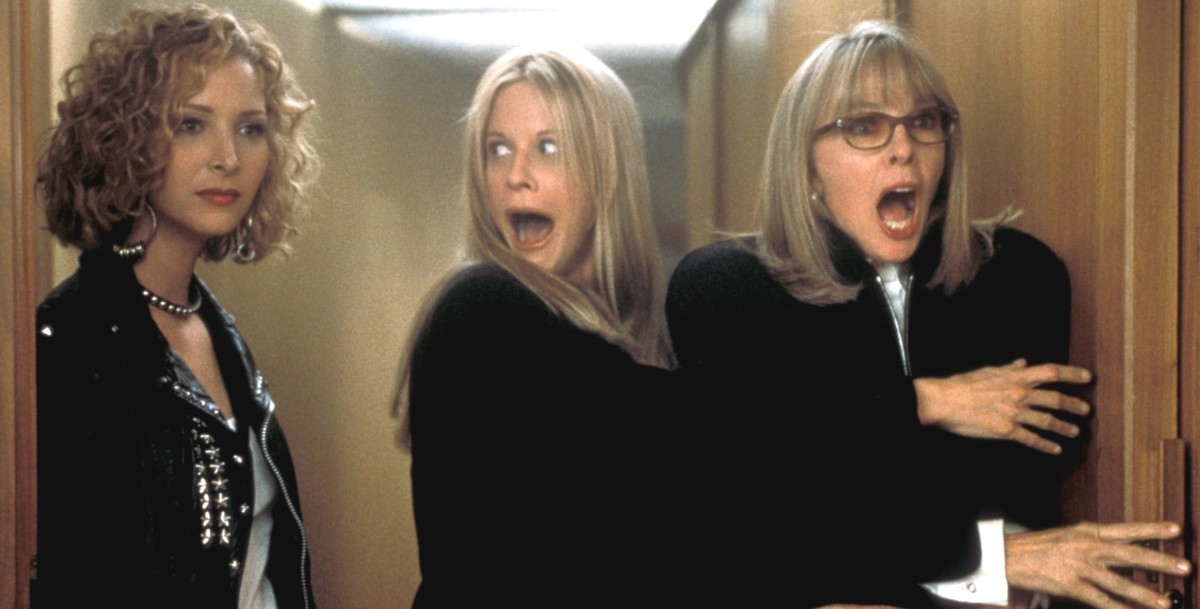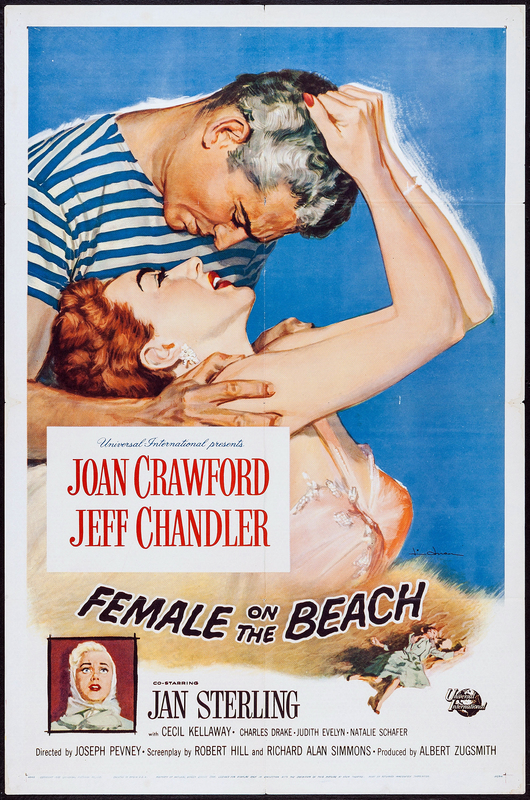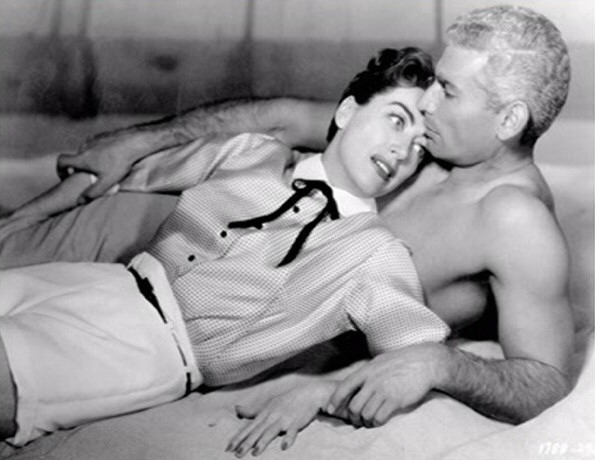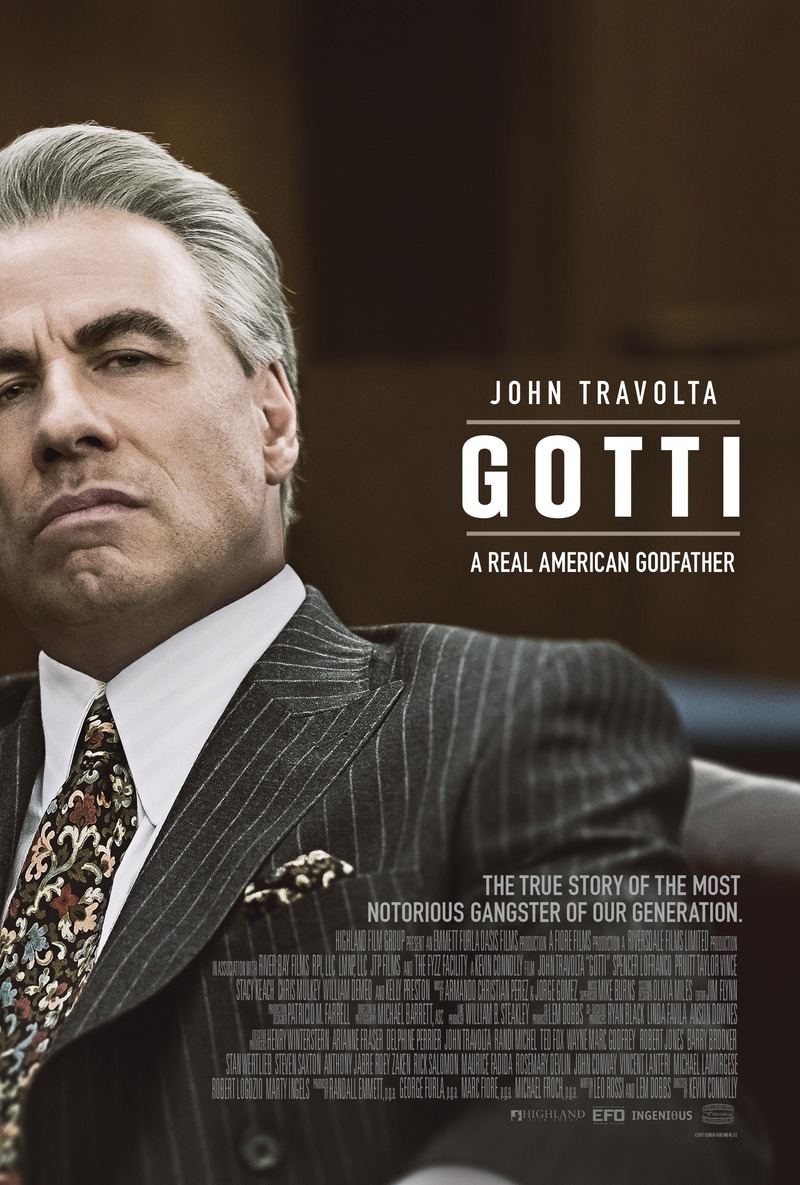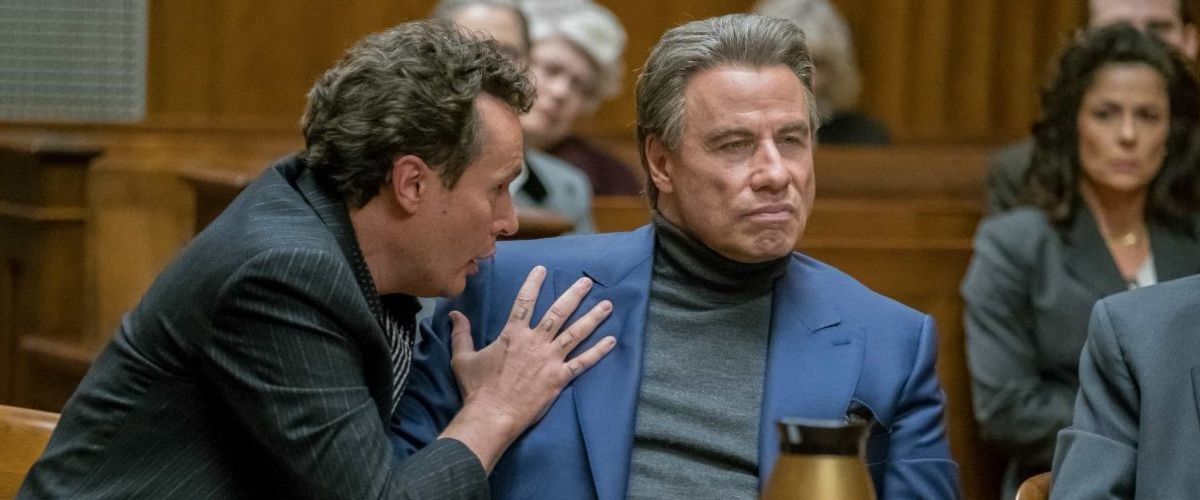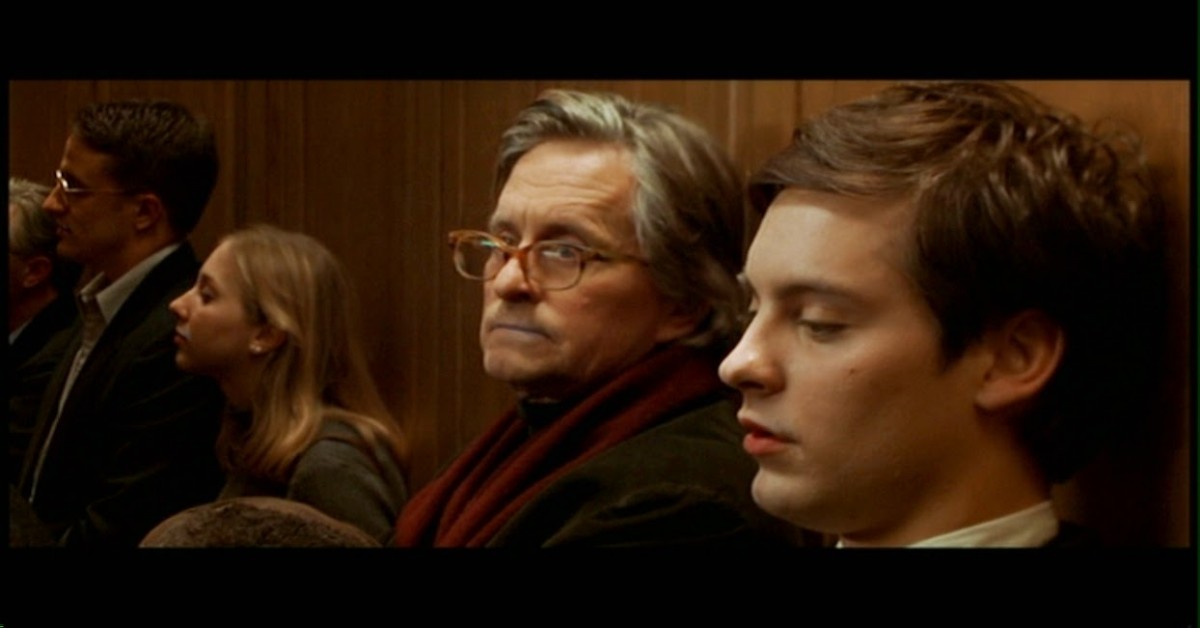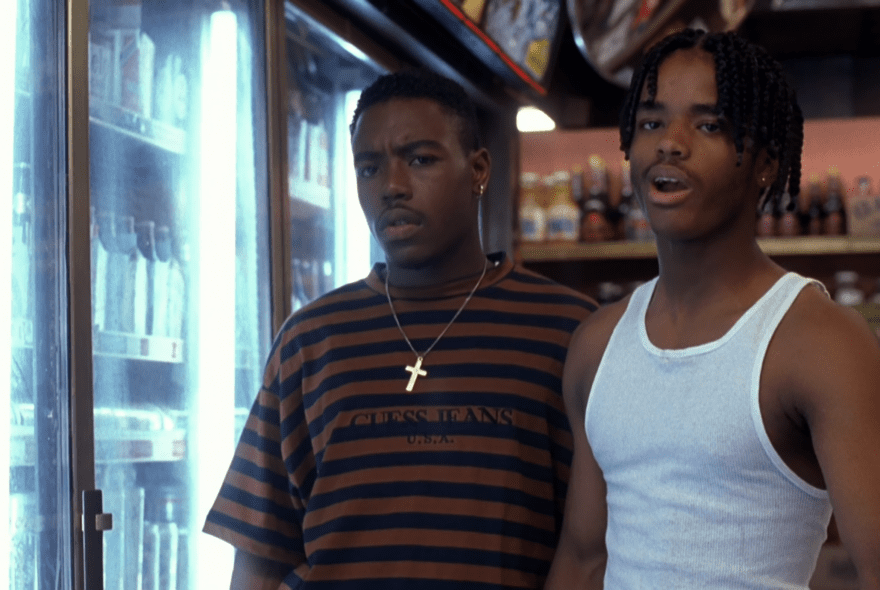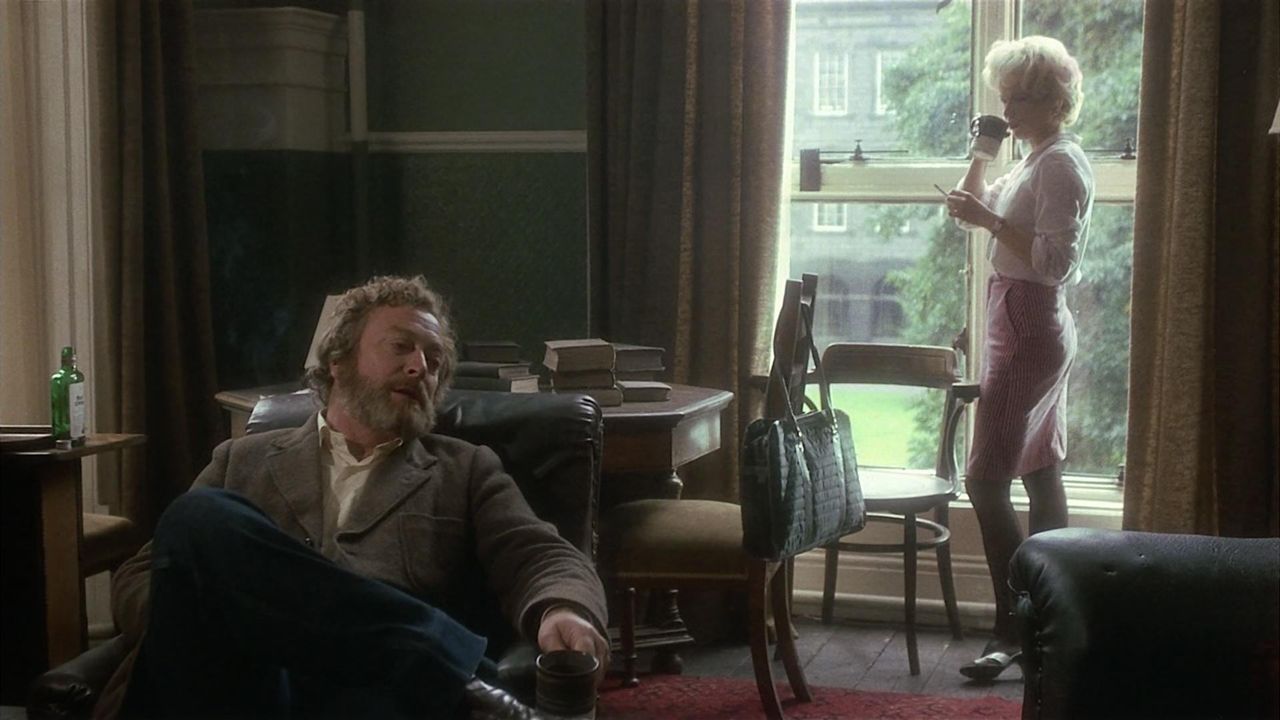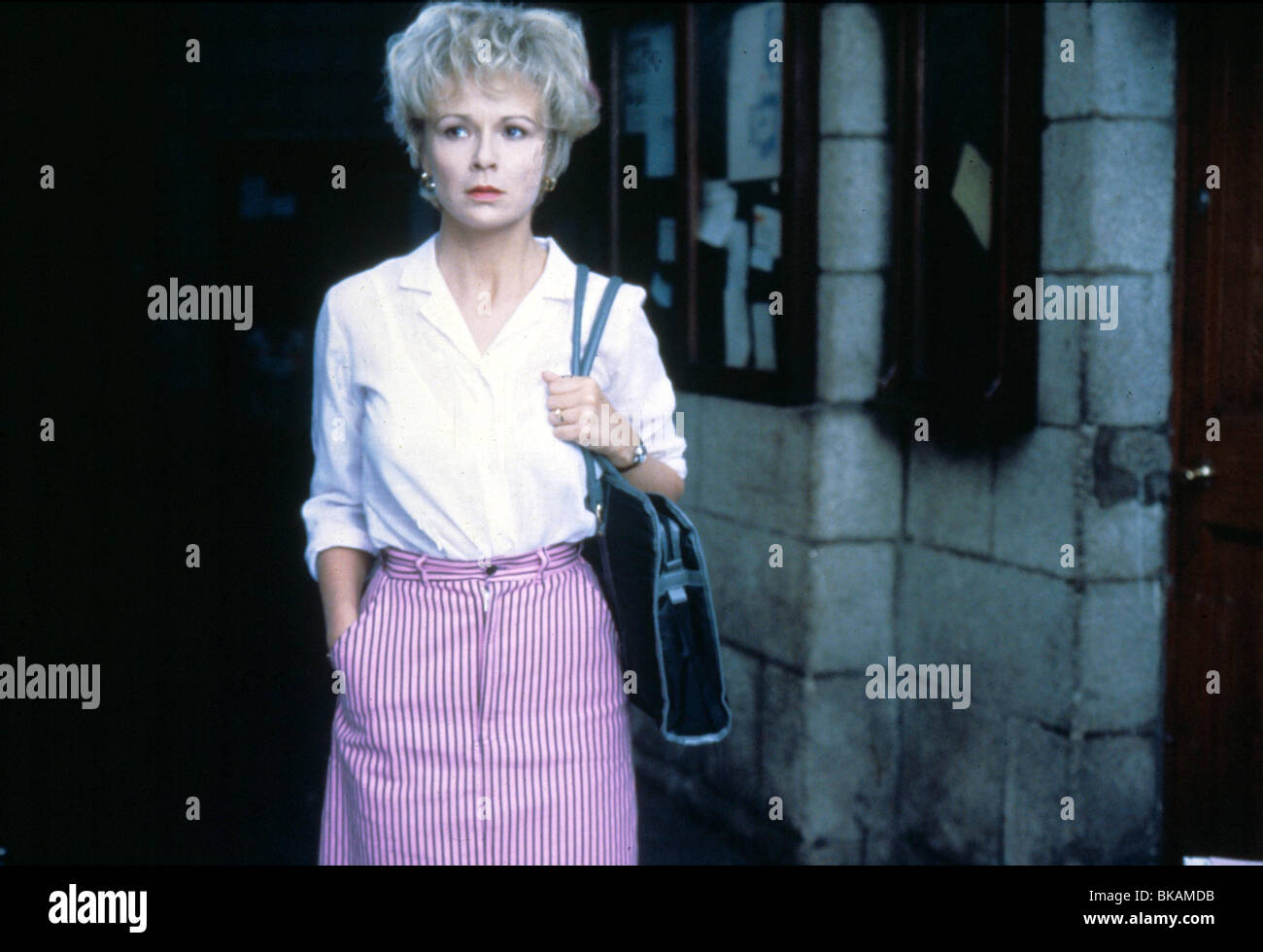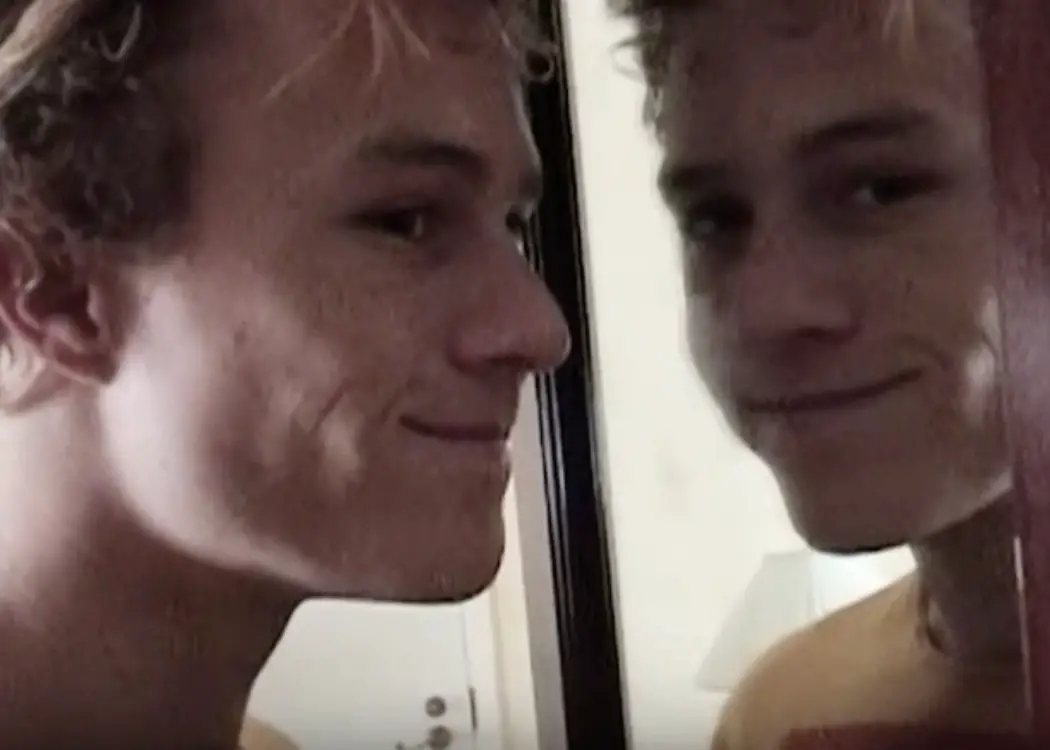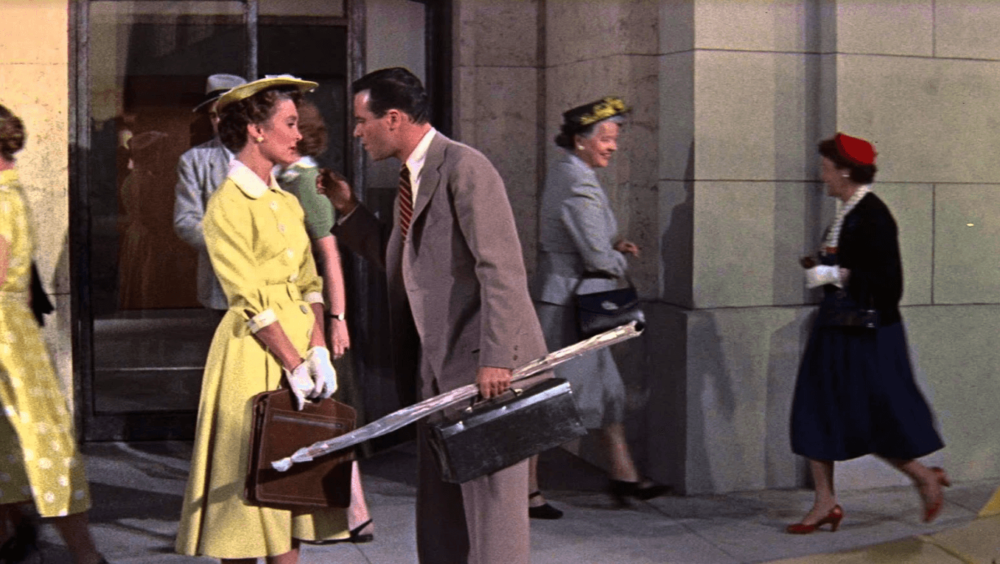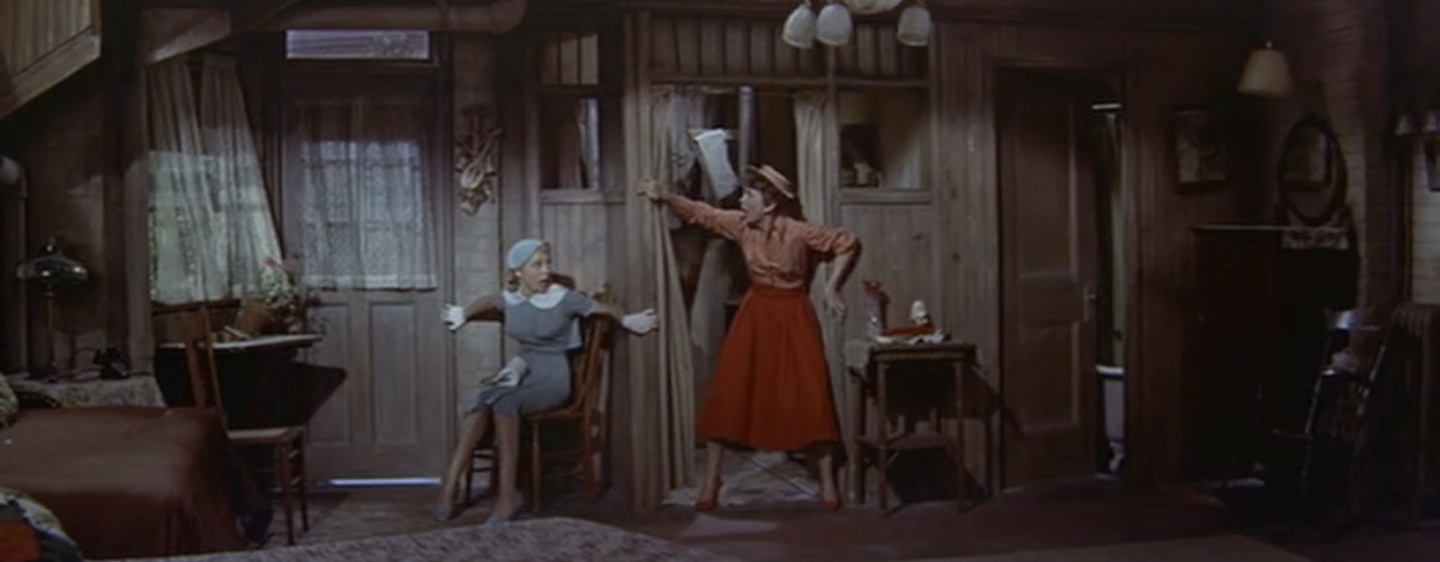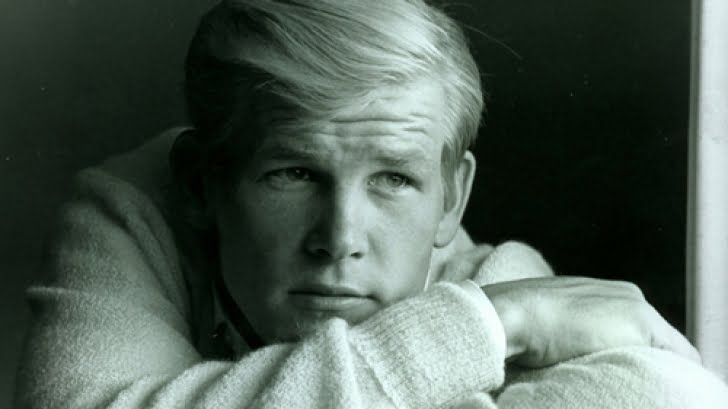A Woman's Secret
Despite another terrific performance from the incomparable Gloria Grahame, 1949's A Woman's Secret is a convoluted and confusing melodrama that never really answers a lot of the questions it poses.

The film opens with a former singer named Marian Washburne (Maureen O'Hara) confessing to the attempted murder of a singer and Broadway star named Susan Caldwell (Grahame), even though a piano player and songwriter named Luke Jordan (Melvyn Douglas) doesn't believe for a minute that Marian committed this crime. The complicated love triangle between these three characters then unfolds in front of us in flashback as detectives and DA's try to figure out exactly what happened to Susan.

Herman J Manckiewicz' screenplay, based on a novel by Vicki Baum (Grand Hotel), confuses from the start as we learn that Marian and Luke actually discovered Susan and the development of her career becomes paramount one night after performing Marian collapses backstage and is mysteriously no longer able to sing. Luke and Marian carefully carve out a career for Susan which actually takes her to Paris and Algiers and eventually back to the states where she becomes a Broadway star, but no insight is ever provided as to why Marian would want Susan dead or confess to trying to kill her.

The story also aggravates because we know that the Luke Jordan character is key to what's going on here and the only time we get an exact look at the relationship between these three people is when certain portions of the story come from Luke Jordan. Incredibly, Jordan seems completely clueless to the fact that both of these women are in love with him, but the love triangle becomes less interesting as we just want to know how Susan and Marian ended up in a room with Susan dead on the floor. We also never really understand why it is so important to Marian that Susan have a successful career.
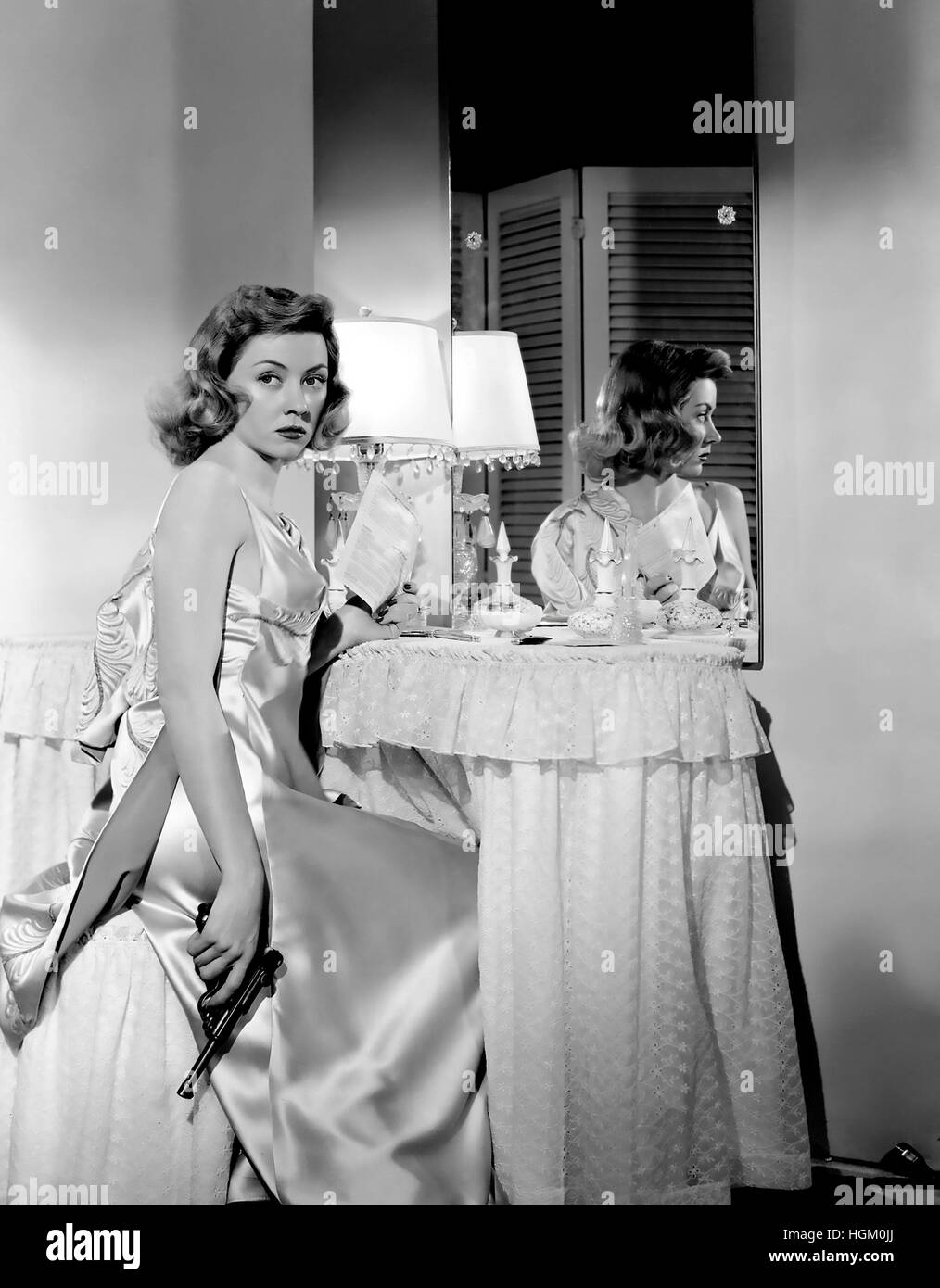
What I did understand is that eventually I didn't care and I just wanted to know what happened when that gunshot went off at the beginning of the movie and I have to admit when we are finally shown exactly what happened, it is a bit of a letdown. Nicholas Ray displays flashes of the director he would become and does get solid performances from O'Hara and Grahame, but the story is so confusing that we almost don't notice. Considering the cast and the director, a disappointment.
Despite another terrific performance from the incomparable Gloria Grahame, 1949's A Woman's Secret is a convoluted and confusing melodrama that never really answers a lot of the questions it poses.

The film opens with a former singer named Marian Washburne (Maureen O'Hara) confessing to the attempted murder of a singer and Broadway star named Susan Caldwell (Grahame), even though a piano player and songwriter named Luke Jordan (Melvyn Douglas) doesn't believe for a minute that Marian committed this crime. The complicated love triangle between these three characters then unfolds in front of us in flashback as detectives and DA's try to figure out exactly what happened to Susan.

Herman J Manckiewicz' screenplay, based on a novel by Vicki Baum (Grand Hotel), confuses from the start as we learn that Marian and Luke actually discovered Susan and the development of her career becomes paramount one night after performing Marian collapses backstage and is mysteriously no longer able to sing. Luke and Marian carefully carve out a career for Susan which actually takes her to Paris and Algiers and eventually back to the states where she becomes a Broadway star, but no insight is ever provided as to why Marian would want Susan dead or confess to trying to kill her.

The story also aggravates because we know that the Luke Jordan character is key to what's going on here and the only time we get an exact look at the relationship between these three people is when certain portions of the story come from Luke Jordan. Incredibly, Jordan seems completely clueless to the fact that both of these women are in love with him, but the love triangle becomes less interesting as we just want to know how Susan and Marian ended up in a room with Susan dead on the floor. We also never really understand why it is so important to Marian that Susan have a successful career.

What I did understand is that eventually I didn't care and I just wanted to know what happened when that gunshot went off at the beginning of the movie and I have to admit when we are finally shown exactly what happened, it is a bit of a letdown. Nicholas Ray displays flashes of the director he would become and does get solid performances from O'Hara and Grahame, but the story is so confusing that we almost don't notice. Considering the cast and the director, a disappointment.
Last edited by Gideon58; 3 weeks ago at 02:51 PM.
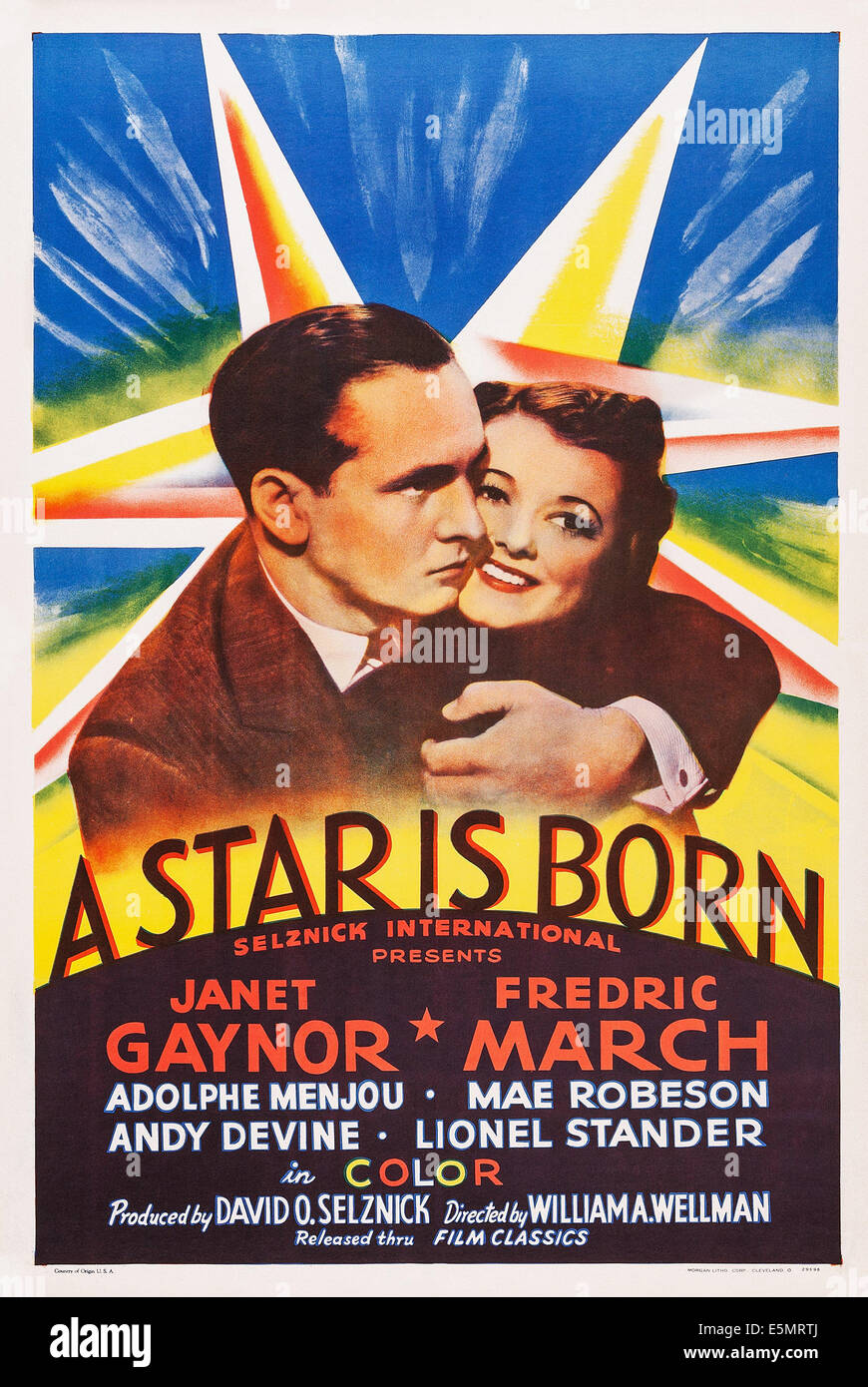
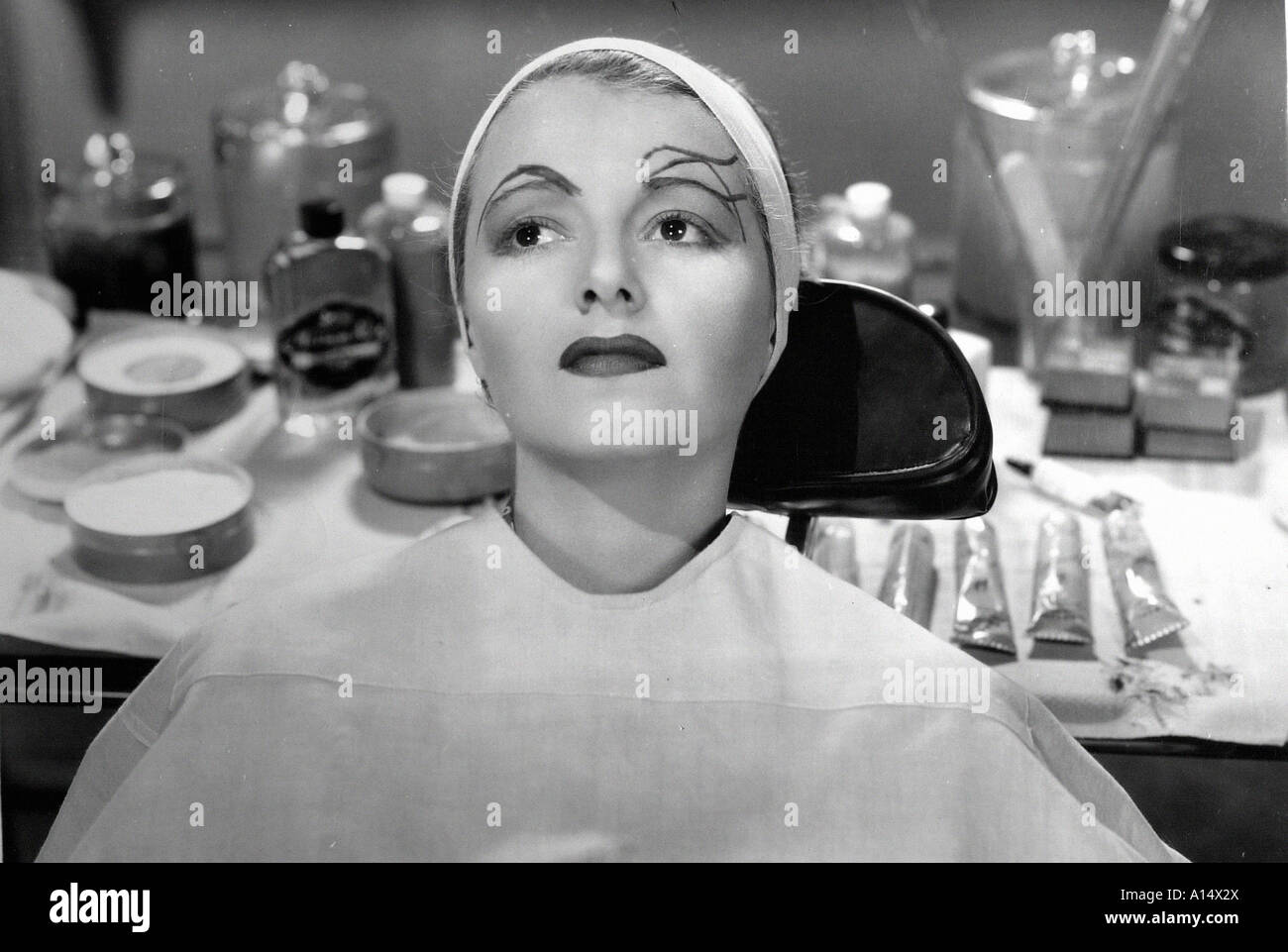
:max_bytes(150000):strip_icc()/a-star-is-born-31cbe1e3c93d48f28eac3d79e3979322.jpg)




